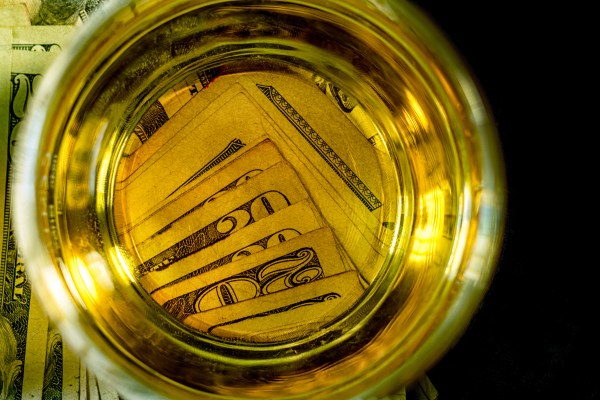Hangovers suck. Especially so for those who felt pressured to drink the alcohol that inevitably caused the hangover to begin with.
Drinking is slowly starting to fall out of fad, especially among younger generations. According to 2022 Gallup polling, 60% of adult Americans drink alcohol. This is down from 65% in 2019, and while 5% doesn’t seem like a huge change, it’s a pretty drastic shift when it comes to consumer spending dollars.
Founders are taking full advantage of the shift as numerous startups have popped up just in the last few years looking to offer low- and non-alcoholic options. Aplós is the latest one to secure funding.
The Miami-based startup announced a $5.5 million Series A round this week led by McCarthy Capital, a Midwestern private equity firm. Co-founder and CEO David Fudge told TechCrunch+ that he wanted to launch the company because he’s always considered himself a “reluctant drinker” but didn’t think there was a product that would fill what he was looking for: something that gave the same relaxation benefits and vibes of alcohol but without the next-day regret.
“The vision is to reimagine the adult beverage category for the new era, to create the first super premium non-alcoholic spirit brand,” Fudge said. “We want the sophistication, complexity, versatility and functionality of a high-end spirit. That’s something that we didn’t see in the market and what we were really interested in ourselves.”
As a consumer, I love that there are entrepreneurs trying to both innovate in this category and bring in new options. Non-alcoholic spirit brands like Aplós feel like a win-win because it not only is giving people more of an incentive to choose perhaps a healthier, lower-calorie option over alcohol, but it gives bars and restaurants a better way of providing comparable non-alcoholic cocktails to their customers and can price them the same. Capitalism!
But while I think the growth of this sector has societal benefits, how it plays out for investors isn’t clear.
One thing that gives me pause is the size of the total addressable market. Sure, you could argue that the market includes all adults, as brands like Aplós market to both folks who drink and those who don’t. Fudge said that they are going after the $1.6 trillion alcohol industry, which would imply a large total addressable market. But that isn’t really it.
For one, Aplós is trying to target the high-end spirit market, which is a significant — but much smaller — segment within that $1.5 trillion total. The higher price point that comes with luxury goods like Aplós also further limits the market size.
According to Allied Market Research, the non-alcoholic spirit market was valued at around $281.1 million in 2021; to put that in perspective Anheuser-Busch InBev has a market cap of more than $111 billion as of Friday.
The industry is expanding rapidly, which is definitely a good sign. It’s expected to grow 8.7% to about $642 million by 2031.
So while the market is growing, its trajectory may make it hard for these non-alcoholic spirit startups to sell to venture investors, as the market won’t even reach $1 billion in collective value by 2030. It just can’t produce the same kind of return that, say, getting into DoorDash’s seed round would — or at least not within the same timeframe.
The other thing about this small market is it’s getting crowded fast. Again, good for consumers, but it makes for an environment where a lot of companies are trying to capture the same small group of potential customers.
PitchBook recently released a list of non-alcoholic brands. It includes 11 non-alcoholic spirit brands, with 10 having been founded after 2019.
This isn’t meant to be discouraging to those brands, of course, it just means this space may be a harder one to build in compared to others. While it may not be on track to deliver home run returns for venture investors, that doesn’t mean it won’t be a good outcome for founders — and consumers.
But at the same time, there are multiple prebiotic soda companies that have raised more than $50 million in venture funding and there is a canned water company valued at $700 million, so who knows?
The real indicator will be the first exit.
Also, a parting note, if your friends actually make you feel bad for not drinking, please get new friends. That’s lame as hell.
